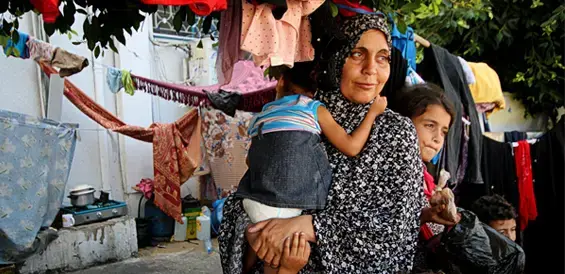Gender based violence is one of the most prevalent human rights violations in the world. It knows no social, economic or national boundaries. Worldwide, an estimated one in three women will experience physical or sexual abuse in her lifetime. In Botswana, over 67% of women have experienced abuse, which is over double the global average. Gender-based violence undermines the health, dignity, security and autonomy of its victims, yet it remains shrouded in a culture of silence and normalization. Victims of violence, the majority of which are women and girls, can suffer sexual and reproductive health consequences, including forced and unwanted pregnancies, sexually transmitted infections including HIV, and even death.
UNFPA is one of the UN's lead agencies working to further gender equality and women’s empowerment, and to specifically address gender-based violence. UNFPA supports and collaborates with the Government of Botswana and other non-state partners to:
- Strengthen policy and advocacy action to legal and policy reforms
- Strengthen GBV research & data systems to support development of evidence-based programmes
- Enhance capacity of services for effective and quality GBV services
- Educate the public education on GBV and
- Promote involvement of men and boys in prevention of GBV and in accessing SRH services.
Engaging Men and Boys
Gender equality and the empowerment of women and girls cannot be achieved without the involvement of men and boys. Negative attitudes that promote gender inequality can be unlearned thereby contributing to healthier relationships. Such inequities significantly contribute to the perpetration of gender based violence (GBV) with women and girls as victims in the majority of cases. Effective responses to gender inequality and GBV require joint effort by women and men. Initiatives that do not involve males in addressing GBV, particularly violence against women; usually have minimal impact.
UNFPA supports the Government of Botswana and civil society organisations with programmes to promote the involvement of men and boys in sexual and reproductive health issues and GBV prevention. These programmes encourage men and boys to abandon harmful stereotypes, embrace respectful, healthy relationships, access sexual and reproductive health services and to be positive fathers. Men and boys are engaged in constructive and non-confrontation ways.



